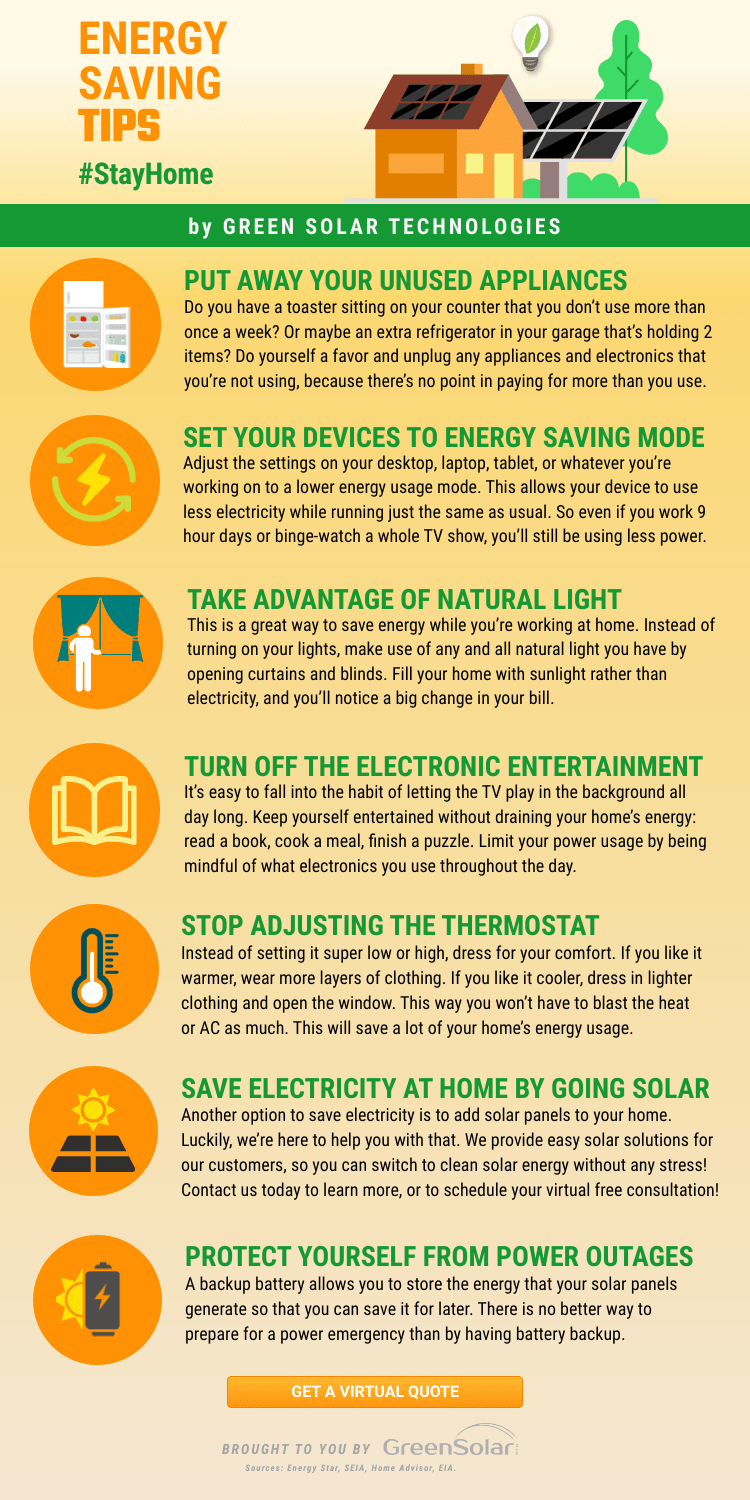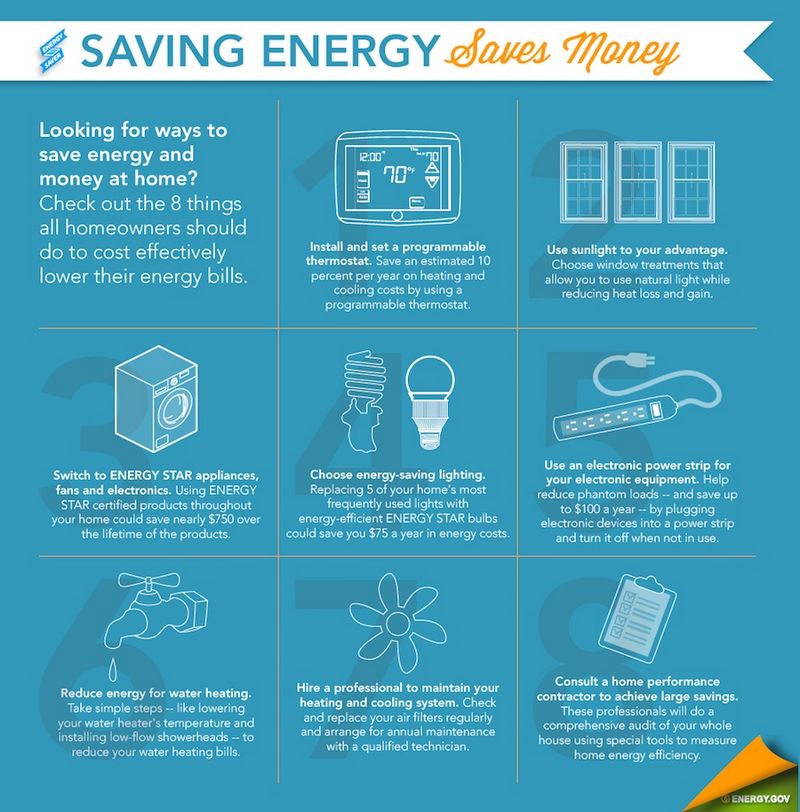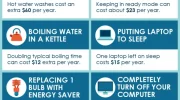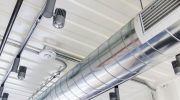
Energy-Efficiency Tips That Can Save You Money
Welcome to [Your Website Name]! We understand that saving money is important to you, and one of the easiest ways to do that is by reducing your energy expenses. In this article, we will share some valuable tips that can help you save both money and energy, increasing the efficiency of your home or workplace.
One of the simplest and most effective ways to save energy is by upgrading to LED light bulbs. LED bulbs use up to 80% less energy than traditional incandescent bulbs and last much longer, saving you money on replacement costs. Not only that, but they also produce less heat, reducing the load on your cooling system during the summer. It’s a win-win situation!
An often overlooked aspect of energy savings is proper insulation. Adding insulation to your walls, ceilings, and floors can significantly reduce heat transfer, which means you spend less on heating in the winter and cooling in the summer. A well-insulated home can save you hundreds of dollars every year.
Another tip is to invest in energy-efficient appliances. Look for the Energy Star label, which guarantees that the appliance meets strict energy efficiency requirements. Energy-efficient refrigerators, washing machines, and dishwashers not only reduce your utility bills but also help protect the environment.
Lastly, don’t forget about the power of smart habits. Simple actions like turning off lights when you leave a room, unplugging electronics when they’re not in use, and using natural light whenever possible can make a big difference in your energy consumption. By making these small changes, you can save money and reduce your carbon footprint.
At [Your Website Name], we believe that everyone can contribute to a more sustainable future. By implementing these energy-saving tips, you can cut your expenses and increase efficiency while doing your part to protect our planet. Start saving money and energy today!
Energy-Saving Tips
Here are some energy-saving tips that can help increase energy-efficiency and save you money:
- Use energy-efficient appliances: Replace old appliances with energy-efficient ones that carry the Energy Star label. They consume less energy and can help you cut down on electricity costs.
- Turn off lights and appliances: When leaving a room, make sure to turn off lights and unplug appliances that are not in use. Leaving them on unnecessarily wastes energy and increases your electricity bill.
- Optimize heating and cooling: Set your thermostat to an optimal temperature and avoid excessive heating or cooling when not needed. Additionally, make sure your home is properly insulated to prevent energy loss.
- Utilize natural light: Open curtains and blinds during the day to let in natural light. This reduces the need for artificial lighting, helping you save energy and money.
- Switch to LED light bulbs: Replace traditional incandescent light bulbs with energy-efficient LED bulbs. They consume less energy and have a longer lifespan, saving you money on replacements.
- Unplug phantom loads: Many electronics and appliances still consume energy when in standby mode. Unplug devices or use power strips with switches to completely cut off power when not in use.
- Use energy-saving settings: Enable power-saving features on electronic devices such as computers, televisions, and printers. These settings reduce energy consumption without compromising functionality.
- Regularly maintain appliances: Clean or replace filters in heating and cooling systems, as clogged filters can reduce efficiency. Keep appliances properly maintained to ensure optimal energy performance.
- Consider energy-efficient windows: Installing energy-efficient windows can significantly reduce heat loss or gain, resulting in lower energy costs for heating and cooling your home.
- Invest in renewable energy sources: If feasible, consider investing in solar panels or other renewable energy sources. They can generate clean energy and reduce your reliance on fossil fuels.
By incorporating these energy-saving tips into your lifestyle, you can contribute to a more sustainable future while also saving money on your energy expenses.
Lower Your Thermostat
One of the easiest ways to save money and increase energy-efficiency is to lower your thermostat. Heating and cooling your home accounts for a large portion of your energy bills, so finding ways to reduce this energy usage can lead to significant savings.
Here are some tips on how you can lower your thermostat:
- Set your thermostat at a lower temperature during the winter months. You can save as much as 10% per year on heating costs by lowering your thermostat by 7-10 degrees Fahrenheit for 8 hours per day.
- Invest in a programmable thermostat. This allows you to easily set lower temperatures at night or when you’re not at home, and automatically adjust to a more comfortable temperature when you need it.
- Dress warmly. Instead of relying solely on your thermostat to keep you warm, layer up with sweaters, blankets, and warm socks. This allows you to set your thermostat lower while still feeling comfortable.
- Use zone heating. If you have a multi-story home or rooms that are not frequently used, consider using space heaters or electric blankets to warm up specific areas instead of heating the entire house.
By implementing these tips and making a conscious effort to lower your thermostat, you can reduce your energy usage and save money on your monthly bills. It’s a small change that can have a big impact on both your wallet and the environment.
Insulate Your Home
To save money on your energy bills and increase energy efficiency, insulating your home is a great option. Proper insulation helps to keep your home warm in winter and cool in summer, reducing the need for heating and air conditioning.
Here are some tips on how you can insulate your home:
- Check for air leaks: Look for any gaps or cracks around windows, doors, and vents. These can be sealed with caulk or weatherstripping to prevent air leaks.
- Insulate your attic: Adding insulation to your attic is one of the most effective ways to improve energy efficiency. Use insulation with a high R-value to ensure maximum insulation.
- Insulate your walls: If your home has cavity walls, consider filling them with insulation material. This can greatly reduce heat loss and improve energy efficiency.
- Insulate your floors: Insulating your floors can prevent heat loss and make your home more comfortable. Use insulation materials specifically designed for floors.
- Insulate your pipes: Insulating hot water pipes can help to reduce heat loss and save energy. Use pipe insulation sleeves or tape to wrap around the pipes.
By insulating your home, you can save money on your energy bills and improve energy efficiency. Take the time to check for air leaks and properly insulate your attic, walls, floors, and pipes. These simple tips can make a significant difference in your energy usage and expenses.
Use Energy-Efficient Light Bulbs
One of the easiest and most effective ways to save energy and money is by using energy-efficient light bulbs. Traditional incandescent light bulbs waste a lot of energy by producing heat, while energy-efficient bulbs, such as LEDs or CFLs, convert most of the energy into light.
Here are a few tips to help you make the most of energy-efficient lighting:
- Switch to LED or CFL bulbs: Replace your old incandescent bulbs with energy-efficient options, such as LED or CFL bulbs. These bulbs are more energy-efficient, produce less heat, and last longer.
- Choose the right brightness: Select bulbs with the appropriate brightness for each room. Using bulbs that are too bright wastes energy, while using bulbs that are too dim may not provide adequate lighting.
- Turn off the lights: Make it a habit to turn off the lights when you leave a room, even if you’re just stepping out for a few minutes. This simple action can help save energy and reduce your electricity bills.
By implementing these energy-saving tips, you can increase your energy-efficiency and save money on your monthly expenses. Energy-efficient light bulbs are a small investment that can make a big difference in your energy usage and overall sustainability.
Unplug Electronics When Not in Use
One simple and effective way to save both money and energy is to unplug electronics when they are not in use. Many people don’t realize that even when electronics are turned off, they still consume energy if they are plugged into an outlet. This is known as “standby power” or “vampire power”. By unplugging these devices, you can eliminate this unnecessary energy usage and reduce your utility bills.
Some examples of electronics that should be unplugged when not in use include:
- Television sets
- Computers and laptops
- Printers and scanners
- Gaming consoles
- Phone chargers
By unplugging these electronics, you can save money on your energy bills and also extend the lifespan of these devices. Constantly being connected to an electrical source can cause wear and tear on electronic components, leading to potential malfunctions or a shorter lifespan.
To make it easier to unplug electronics when not in use, you can use power strips or surge protectors with on/off switches. This way, you can simply flip the switch to cut off power to multiple devices at once. It’s also a good idea to label each cord or device, so you know what is plugged in and can easily identify which ones to unplug.
Unplugging electronics when not in use is a small but effective step that you can take to increase energy efficiency and save money in the long run. Remember, it’s the little changes like these that can make a big difference over time.
Seal Air Leaks
Air leaks in your home can cause drafts and waste energy, leading to higher heating and cooling bills. By sealing air leaks, you can improve the energy efficiency of your home and reduce your expenses. Here are some tips that can help you save energy:
- Inspect doors and windows: Check for any gaps or cracks around doors and windows. Use weatherstripping or caulk to seal these areas and prevent air leaks.
- Seal electrical outlets: Install foam gaskets behind the electrical outlet plates to insulate them and prevent air leakage.
- Seal ductwork: Inspect the ductwork in your home and seal any leaks with duct tape or mastic sealant. This will prevent heated or cooled air from escaping and improve the efficiency of your HVAC system.
- Use door sweeps: Install door sweeps at the bottom of exterior doors to seal the gap between the door and the floor.
- Insulate attic access: Add insulation around the opening of your attic access to prevent air leaks.
By taking these simple steps to seal air leaks, you can improve the energy efficiency of your home and reduce your energy expenses. Remember, every little bit counts when it comes to saving energy!
Maintain Your HVAC System
Regular maintenance of your HVAC (Heating, Ventilation, and Air Conditioning) system is crucial for energy-efficiency and can help you save money in the long run. Here are some tips to ensure that your HVAC system is running efficiently:
- Clean or replace air filters regularly: Dirty air filters can restrict airflow and cause your HVAC system to work harder, consuming more energy. Regularly clean or replace your air filters to improve energy-efficiency.
- Check and seal air ducts: Leaky air ducts can lead to energy loss by allowing conditioned air to escape. Inspect your air ducts for any leaks and seal them using tape or mastic to improve energy-efficiency and save money.
- Keep outdoor units clean: Outdoor HVAC units can accumulate dirt, leaves, and debris, which can hinder airflow and reduce energy-efficiency. Regularly clean the outdoor unit and keep the surrounding area clear of any obstructions.
- Schedule annual professional maintenance: It’s recommended to have your HVAC system inspected and serviced by a professional technician once a year. A professional can identify any issues, clean components, and ensure that your system is running efficiently.
- Upgrade to a programmable thermostat: A programmable thermostat allows you to automatically adjust the temperature settings based on your schedule, saving energy when you’re not at home. This can lead to significant energy and cost savings over time.
By following these maintenance tips, you can maximize the energy-efficiency of your HVAC system and ultimately save money on your energy expenses. Remember, a well-maintained HVAC system not only saves you money, but it also increases the lifespan and reliability of your equipment.
Turn Off Lights When You Leave a Room
One of the easiest and most effective energy-saving tips is to turn off the lights when you leave a room. By simply remembering to flip the switch, you can save money on your electricity bill and increase your energy efficiency.
Leaving lights on in empty rooms is a common habit that can waste a significant amount of energy. By making a conscious effort to turn off lights when you’re not using them, you can minimize your energy consumption and reduce your carbon footprint.
Here are a few reasons why turning off lights when you leave a room is important:
- Save money: Turning off lights when you don’t need them can significantly reduce your electricity bill. Even just a few minutes of unused lighting can add up over time.
- Conserve energy: Leaving lights on unnecessarily contributes to energy waste. By turning them off, you help conserve valuable resources and contribute to a more sustainable future.
- Extend bulb lifespan: Constantly leaving lights on can shorten the lifespan of your light bulbs. Turning them off when not in use can help them last longer, saving you money on replacements.
To make it easier to remember to turn off lights, here are a few tips:
- Install occupancy sensors or motion detectors: These devices automatically turn lights on when someone enters a room and turn them off when the room is empty.
- Create reminders: Place small notes near light switches or use smartphone apps to set reminders to turn off lights.
- Opt for natural light: Open curtains and blinds during the day to allow natural light into your space, reducing the need for artificial lighting.
- Choose energy-efficient bulbs: LED bulbs are not only more energy-efficient but also have a longer lifespan, which means you’ll have to change them less frequently.
Remember, every small action counts when it comes to energy efficiency. By simply turning off lights when you leave a room, you can make a positive impact on the environment and save money in the long run.
| Save money on your electricity bill |
| Conserve energy and reduce your carbon footprint |
| Extend the lifespan of your light bulbs |
Use Natural Light Whenever Possible
When it comes to energy-efficiency and saving money on your utility bills, one simple tip is to utilize natural light in your home or office whenever possible. Rather than relying on artificial lighting, take advantage of the sunlight that is available to you throughout the day. Not only will this help you save on energy costs, but it can also significantly improve the atmosphere and mood of your space.
Here are some tips on how you can make the most of natural light:
- Position your furniture strategically: Arrange your furniture in a way that allows natural light to flow freely through the room. Avoid placing large pieces of furniture in front of windows or blocking any windows entirely.
- Use lighter-colored curtains or blinds: Opt for lighter-colored window coverings that allow more light to pass through. Sheer curtains or blinds can provide privacy while still letting natural light fill the room.
- Install skylights or larger windows: If possible, consider installing skylights or larger windows to increase the amount of natural light coming into your space. This can make a significant difference in the overall brightness and energy efficiency of your home or office.
- Keep windows clean and unobstructed: Regularly clean your windows to remove any dirt or grime that may be blocking the sunlight. Additionally, ensure that there are no objects or obstructions in front of the windows that could block the natural light.
By implementing these simple tips, you can make the most of natural light and reduce your reliance on artificial lighting. Not only will this help you save money on your energy bills, but it will also create a more inviting and comfortable environment for you to enjoy.
Upgrade to Energy-Efficient Appliances
One of the best ways to increase energy-efficiency in your home is by upgrading to energy-efficient appliances. These appliances are designed to consume less energy, which not only helps the environment but also saves you money on your utility bills.
Here are some tips on how upgrading to energy-efficient appliances can save you money:
- Energy Savings: Energy-efficient appliances are designed to use less electricity or water than their traditional counterparts. This means that they can help reduce your energy consumption and lower your utility bills.
- Long-term Cost Savings: While energy-efficient appliances may cost more upfront, they can save you money in the long run. Their lower energy consumption means that you will be spending less on utilities over time.
- Energy Star Certification: Look for appliances with the Energy Star label. These appliances have been certified by the EPA as meeting strict energy-efficiency guidelines.
- Increased Performance: Energy-efficient appliances often offer improved performance compared to traditional models. For example, energy-efficient refrigerators may have better insulation, leading to more consistent cooling and less energy waste.
When upgrading to energy-efficient appliances, consider the following:
- Research: Before purchasing a new appliance, do some research to find the most energy-efficient options available. Look for models with high energy-efficiency ratings.
- Size: Consider the size of the appliance and choose one that is appropriate for your needs. An oversized appliance will consume more energy than necessary.
- Additional Features: Some energy-efficient appliances may come with additional features that can further enhance energy savings, such as programmable thermostats or eco-friendly wash cycles.
By upgrading to energy-efficient appliances, you can not only save money but also contribute to a more sustainable future. Make smart choices when selecting your appliances, and enjoy the benefits of energy-efficiency in your home.
Install a Smart Thermostat
One of the most effective ways to increase energy efficiency in your home is by installing a smart thermostat. These thermostats are designed to learn your heating and cooling preferences and automatically adjust the temperature to optimize energy usage. Here are some tips on how a smart thermostat can help you save energy and reduce expenses:
- Automated Temperature Control: Smart thermostats can be programmed to automatically adjust the temperature based on your schedule. You can set different temperature settings for when you’re away from home, sleeping, or awake, ensuring that energy is not wasted when you don’t need it.
- Remote Access: With a smart thermostat, you can control the temperature of your home from anywhere using your smartphone or computer. This means that if you’re away and forgot to adjust the thermostat, you can simply do it remotely to save energy and money.
- Energy Usage Tracking: Many smart thermostats come with energy usage tracking features that allow you to monitor how much energy you’re using and when. This information can help you identify patterns, make adjustments, and find additional ways to save energy.
- Smart Integration: Smart thermostats can often be integrated with other smart home devices, such as smart lighting or smart blinds. This integration allows for a more comprehensive and automated approach to energy efficiency, as these devices can work together to optimize energy usage.
- Adjustment Recommendations: Some smart thermostats can provide recommendations on how to save energy based on your usage patterns. These recommendations can include adjusting temperature settings, changing HVAC filters, or implementing other energy-saving measures.
By installing a smart thermostat, you can take advantage of these energy-saving features and significantly reduce your energy expenses while also increasing the overall efficiency of your home.
Use Power Strips
Using power strips is a beneficial way to save energy and increase energy efficiency in your home or office. Power strips are devices that allow you to plug multiple appliances or electronic devices into a single power source. Here are some tips on how power strips can help you save energy:
- Reduces Standby Power: Many electronic devices consume energy even when they are not in use. This is known as standby power or vampire power. By plugging your devices into a power strip, you can easily turn them off with a single switch, cutting off their power supply completely and reducing standby power consumption.
- Controls Phantom Load: Phantom load refers to the energy consumed by appliances or devices that are turned off but still plugged in. Power strips with built-in switches are an effective solution to control phantom load. By switching off the power strip when the devices are not in use, you can prevent unnecessary power consumption.
- Organizes and Simplifies: Power strips can help you organize and simplify the wiring and connection of your appliances and devices. With a power strip, you can plug multiple devices into a single source, reducing the number of individual power outlets needed. This not only saves energy but also reduces clutter.
- Improves Safety: Power strips often come with surge protectors, which help protect your appliances and devices from power surges and voltage spikes. By using power strips, you can ensure the safety of your valuable electronic equipment and prevent damage caused by electrical fluctuations.
By utilizing power strips, you can effectively save energy and increase energy efficiency in your home or office. Take advantage of the benefits they offer and implement these tips to reduce unnecessary power consumption and lower your energy expenses.
Wash Clothes in Cold Water
Did you know that washing your clothes in cold water can save a significant amount of energy and money? Many people believe that washing clothes in hot water is more effective at cleaning, but in reality, most of the energy used during a laundry cycle is for heating the water. By switching to cold water, you can still achieve clean clothes while reducing your energy consumption.
Here are a few reasons why washing clothes in cold water is a great energy-saving tip:
- Save on energy costs: The Department of Energy estimates that using cold water instead of hot water can save around $60 per year on average. This reduction in energy usage can make a significant impact on your monthly bill.
- Preserve fabric quality: Cold water is gentler on fabrics, preventing shrinking, fading, and wear and tear. It can help your clothes last longer and maintain their original color and shape.
- Reduce greenhouse gas emissions: The energy used to heat water in washing machines often comes from fossil fuels, which contribute to greenhouse gas emissions. By washing clothes in cold water, you can help reduce these harmful emissions and contribute to a more sustainable future.
When washing clothes in cold water, there are a few additional tips that can further improve energy efficiency:
- Choose a cold water detergent: Look for laundry detergents specifically designed for washing in cold water. These detergents are formulated to work effectively at lower temperatures.
- Pre-soak stained clothes: For tough stains, try pre-soaking the garments in cold water with a stain remover before washing. This can help loosen the stain, making it easier to remove during the wash cycle.
- Use a high-efficiency washing machine: If you’re in the market for a new washing machine, consider investing in a high-efficiency model. These machines are designed to use less energy and water, further reducing your environmental impact.
By making the simple switch to washing clothes in cold water, you can save energy, reduce expenses, and contribute to a more sustainable lifestyle. Start implementing this energy-saving tip today and reap the benefits!
Reduce Water Heater Temperature
Lowering the temperature on your water heater can save you money and increase energy efficiency. Here are some tips to help you achieve this:
- 1. Adjust the temperature settings: Most water heaters have a temperature control dial that allows you to set the desired temperature. Lowering the temperature to around 120 degrees Fahrenheit (49 degrees Celsius) can help reduce energy consumption.
- 2. Insulate your water heater: Insulating your water heater can help minimize heat loss, especially if it is located in an unheated area such as a basement. You can use an insulating blanket or jacket to wrap around the water heater.
- 3. Install a timer: Adding a timer to your water heater can automatically switch it off during periods when you don’t need hot water, such as when you’re at work or asleep. This can reduce unnecessary energy usage.
- 4. Use low-flow fixtures: Installing low-flow showerheads and faucets can help reduce the amount of hot water you consume, thereby decreasing the workload on your water heater.
- 5. Check for leaks: Regularly inspect your water heater and the surrounding pipes for any leaks. Even a small leak can waste a significant amount of hot water and increase your energy bills.
By following these simple tips, you can save money and improve the energy efficiency of your water heater. Remember that small changes can add up to big savings over time!
Plant Shade Trees
Planting shade trees around your home is not only a great way to improve the aesthetics of your property, but it can also help you save money and increase energy efficiency. Here are some tips on how you can save energy and money by planting shade trees:
- Strategic Placement: Plant trees on the west and east sides of your home to provide shade during the hottest parts of the day. The shade will help reduce the amount of direct sunlight that enters your home, keeping it cooler and reducing the need for air conditioning.
- Deciduous Trees: Consider planting deciduous trees, which provide shade in the summer but shed their leaves in the winter, allowing sunlight to warm your home during the colder months.
- Proper Tree Size: Choose trees that will grow to an appropriate size for your property. Planting trees that are too large can block views and cause damage to your home or infrastructure.
- Maintenance: Proper care and maintenance of your shade trees is important to ensure their health and longevity. Regular pruning and watering can help keep them in good condition.
By planting shade trees, you can save money on your energy bills and improve the energy efficiency of your home. The shade provided by the trees will reduce the need for air conditioning, allowing you to save on cooling costs. Additionally, the natural beauty of the trees can enhance your outdoor living spaces and increase the value of your property.
So go ahead and start planting shade trees today! Not only will you be able to enjoy the benefits of energy savings, but you’ll also contribute to a greener and more sustainable environment.
Use Ceiling Fans
One energy-saving tip that can help you save money on your electricity bills is to use ceiling fans. Ceiling fans are a great way to increase energy-efficiency in your home while keeping you cool and comfortable.
Here are some tips on how to effectively use ceiling fans:
- Turn off the ceiling fan when you leave the room. Ceiling fans do not actually cool the air, but they create a wind-chill effect which makes you feel cooler. So, there is no need to keep them running when no one is in the room.
- Adjust the direction of the ceiling fan based on the season. In the summer, the fan should rotate counterclockwise to create a cool breeze. In the winter, the fan should rotate clockwise to circulate warm air that rises to the ceiling.
- Set your thermostat to a higher temperature when using ceiling fans. The air movement created by the fan will make the room feel cooler, allowing you to raise the thermostat and save on cooling costs.
- Consider installing ceiling fans in all bedrooms and common living areas. This will help distribute cool air evenly throughout the house, reducing the strain on your air conditioning system.
Using ceiling fans is a simple and effective way to increase energy-efficiency in your home, save money, and stay comfortable. Make sure to follow these tips to maximize the benefits of using ceiling fans.
Optimize Your Insulation
Did you know that properly insulating your home can save you a significant amount of money? Insulation helps to keep your home warm in the winter and cool in the summer, reducing the need for heating and air conditioning. Here are some tips to help you optimize your insulation:
- Check for air leaks: Before adding insulation, it is important to identify and seal any air leaks in your home. Common areas where air leaks occur include windows, doors, and electrical outlets. Use weatherstripping and caulk to seal these gaps.
- Insulate your attic: Heat rises, so it is important to have proper insulation in your attic. Insulating this area can help prevent heat loss in the winter and heat gain in the summer.
- Insulate your walls: Insulating your walls can help reduce heat transfer and improve energy efficiency. There are different types of insulation materials available, such as fiberglass batts, cellulose, and spray foam. Choose the one that best suits your needs and budget.
- Insulate your ductwork: If you have a central heating and cooling system, insulating your ductwork can greatly improve its efficiency. Insulated ducts help to minimize heat loss or gain as air travels through them, ensuring that conditioned air reaches its intended destination.
- Consider adding insulation to your floors: If you have an uninsulated crawl space or basement, adding insulation to the floors above can help prevent heat loss or gain. Insulated floors can also improve the comfort of your home.
Remember, optimizing your insulation can not only save you money on energy bills, but also make your home more comfortable. Take the time to evaluate your insulation and make any necessary improvements.
Q&A:
What are some simple ways to save energy and reduce expenses in my home?
There are several simple things you can do to save energy and reduce expenses in your home. First, you can turn off lights and appliances when you’re not using them. Second, you can install energy-efficient light bulbs and appliances. Third, you can insulate your home to prevent drafts and keep the heat in. Fourth, you can use natural light during the day instead of turning on lights. Finally, you can adjust your thermostat to save energy when you’re not at home or when you’re sleeping.
How can I make my home more energy-efficient and eco-friendly?
To make your home more energy-efficient and eco-friendly, you can start by using energy-efficient appliances and lighting. You can also install low-flow showerheads and faucets to conserve water. Additionally, you can insulate your home and seal any drafts to prevent heat loss. Finally, you can consider using renewable energy sources such as solar panels or wind turbines to power your home.
Can using energy-saving tips really make a difference in my monthly expenses?
Yes, using energy-saving tips can definitely make a difference in your monthly expenses. By implementing simple changes such as turning off lights and appliances when not in use, using energy-efficient bulbs and appliances, and adjusting your thermostat, you can significantly reduce your energy consumption and lower your monthly bills.
What are some long-term investments I can make to save energy and money?
There are several long-term investments you can make to save energy and money in the long run. One option is to invest in renewable energy sources such as solar panels or wind turbines. While the upfront cost may be high, these systems can generate clean energy and reduce your reliance on traditional sources. Another option is to upgrade your home’s insulation and windows to improve energy efficiency. Additionally, investing in energy-efficient appliances and HVAC systems can also lead to significant energy savings over time.
Are there any government programs or incentives available to help with energy-saving initiatives?
Yes, there are government programs and incentives available to help with energy-saving initiatives. Many governments offer tax credits or rebates for purchasing energy-efficient appliances or making energy-efficient home improvements. Additionally, some utility companies offer programs that provide discounted rates or incentives for using renewable energy sources. It’s worth researching the specific programs and incentives available in your area to take advantage of these cost-saving opportunities.
What are some simple ways to save energy at home?
There are several simple ways to save energy at home. One way is to turn off lights, appliances, and electronics when they are not in use. Another way is to use energy-efficient light bulbs and appliances. Additionally, you can insulate your home to prevent heat loss in the winter and cool air loss in the summer.
How can I reduce my electricity bill?
There are several ways you can reduce your electricity bill. One way is to unplug electronics and appliances when they are not in use, as they can still draw power even when they are turned off. Another way is to adjust your thermostat slightly so that it is not running as often. Additionally, you can install energy-efficient light bulbs and appliances, as they use less electricity.









